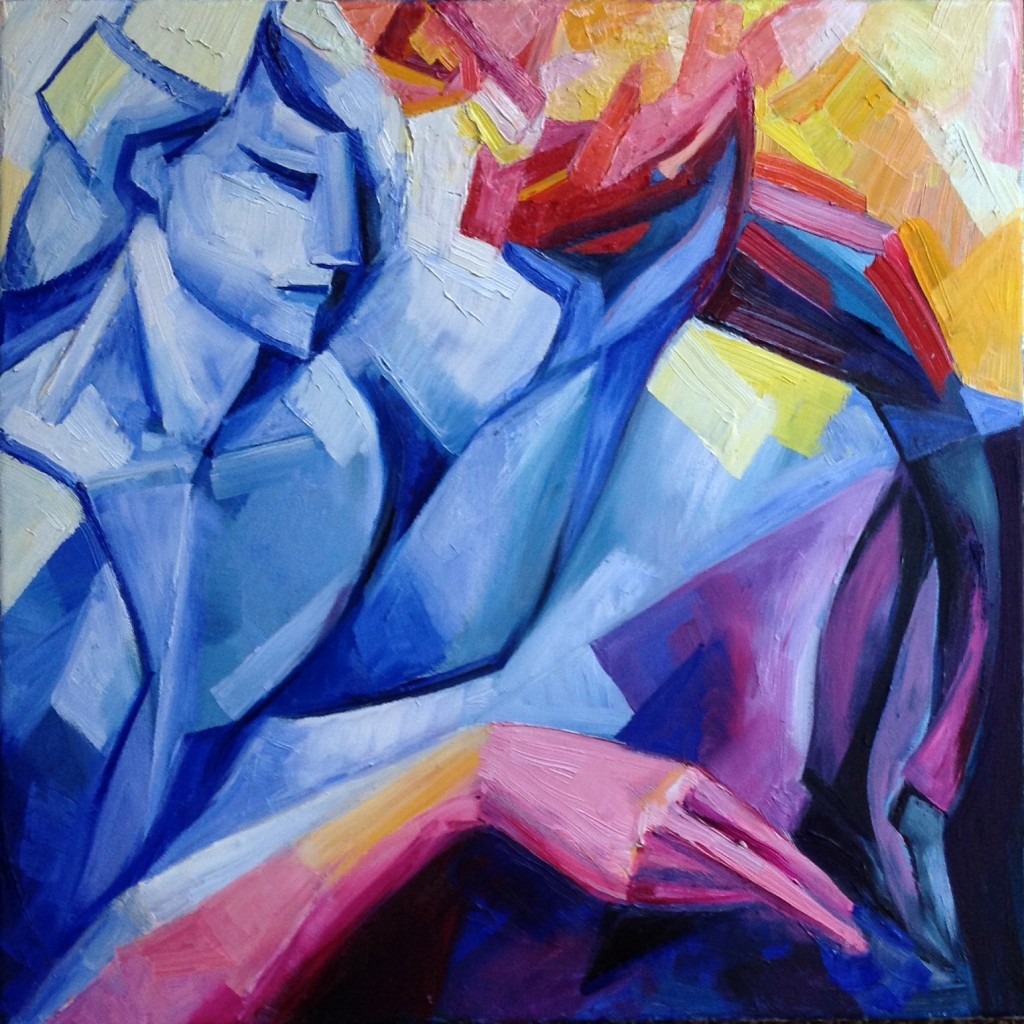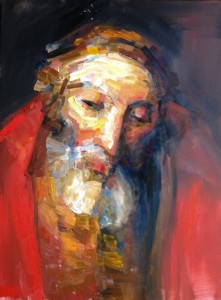 Both Friday themes — the Rembrandt detail study, and the eighty second sonnet — continued on Saturday.
Both Friday themes — the Rembrandt detail study, and the eighty second sonnet — continued on Saturday.
 I didn’t really plan to paint on Saturday — the plan was a long walk in the park, and the sky was beautiful. But it started raining, and this created a “window” for a brief painting session, some more work on the Rembrandt study. I wanted to focus on the periphery of the portrait, the breathtaking colours of his clothing, but noticed some mistakes in and around the head. The experience was much less unambiguously positive than yesterday — a fair bit of struggle and frustration; not quite the joyful flow of yesterday. It seems the very mode of “correcting mistakes” is not really conductive to the flow, and I don’t quite know what to do with it (given that mistakes do happen, and have to be corrected). I will probably return to this study — and to this question — later this week.
I didn’t really plan to paint on Saturday — the plan was a long walk in the park, and the sky was beautiful. But it started raining, and this created a “window” for a brief painting session, some more work on the Rembrandt study. I wanted to focus on the periphery of the portrait, the breathtaking colours of his clothing, but noticed some mistakes in and around the head. The experience was much less unambiguously positive than yesterday — a fair bit of struggle and frustration; not quite the joyful flow of yesterday. It seems the very mode of “correcting mistakes” is not really conductive to the flow, and I don’t quite know what to do with it (given that mistakes do happen, and have to be corrected). I will probably return to this study — and to this question — later this week.
What I really wanted to happen to me this week is a vision of the eighty second sonnet painting, and it did. By the end of the walk, I was overwhelmed (crushed almost) with the anxiety and fear about a sore spot on my gum, and the accompanying anticipation of all the visits to my dentist this might lead to — a petty fear that managed to completely break the miraculous experience of unity with nature.
But however unpleasant and humbling, this clarified two things for me. At some intuitive level, I know this gum can heal without any involvement of the dentist — but for that, I need to let go of pride, the sensation of which lives somewhere between the throat and the forehead. This little sore place in my body is not a nuisance, it’s a signal. I’ve noticed lately that I almost completely lost the ability to feel “negative” feelings (like pride or fear) as emotions — they are felt as physical sensations in the body.
On the other hand, this experience clarified the theme of the sonnet: here was this collapse of a god-like “self” (in Shakespeare’s case, of someone capable of bestowing immortality and conversing with muses) to a small, pitiful one, overcome and crushed with anger, fear, and petty jealousy. This is the collapse I’ve got to paint.
And so I have the vision for the sonnet: a space expanding from the left upwards to the right, and the small (flat, cubistic, not quite whole) human figure crushed in the bottom right part. And this one will “rhyme” with the painting located just above it in the future sixteen-sonnets composition (and at the top of this post — Sonnet 78) — as though this god-like muse has finally thrown the human to the earth. Something to work on tomorrow, and for the whole week.